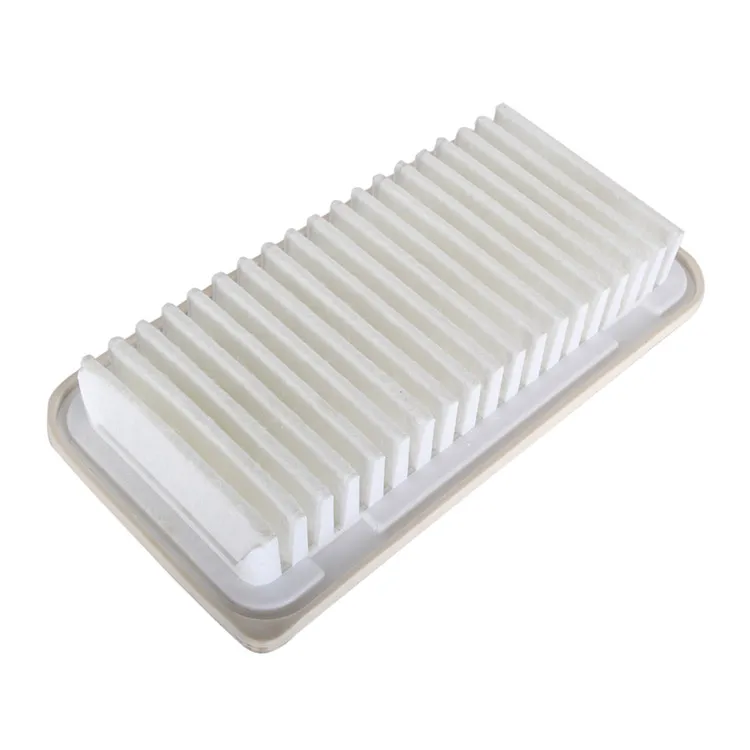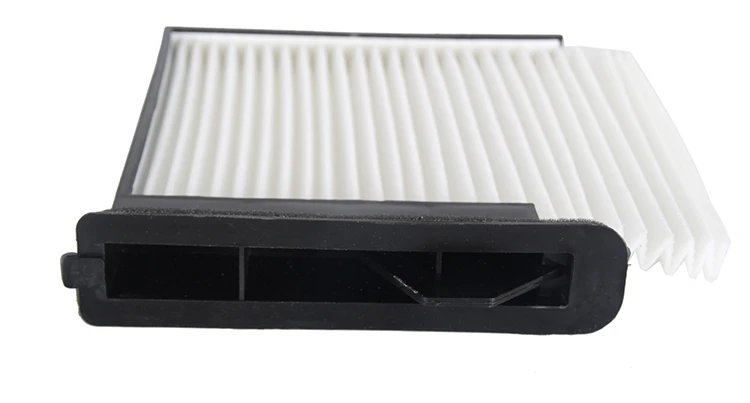
- The critical importance of regular filter maintenance schedules
- Quantifiable performance impacts of neglected replacements
- Engineering advantages in modern filtration technology
- Comparative analysis of leading manufacturer specifications
- Vehicle-specific optimization strategies for maximum efficiency
- Documented results from practical implementation scenarios
- Actionable framework for sustainable filter management

(how often to change car filter)
Understanding How Often to Change Car Filters: The Foundation of Vehicle Health
Maintaining optimal cabin air quality and engine performance begins with understanding replacement intervals for vital filtration components. Automotive engineers universally agree that neglecting these components leads to compromised systems, yet studies show 41% of vehicle owners follow incorrect maintenance schedules. Regular filter changes prevent particulates from accumulating in critical systems, with research from SAE International demonstrating proper maintenance can extend engine life by up to 23,000 miles. This foundational knowledge separates proactive vehicle owners from those facing avoidable repair costs.
Performance Metrics and Replacement Frequency
Automotive filtration systems exhibit measurable performance degradation within specified operational windows. Research conducted by the Automotive Service Association reveals:
- Cabin air filters lose 27% airflow capacity after 12 months/12,000 miles
- Particulate capture efficiency drops 34% by 18 months/18,000 miles
- HVAC system strain increases energy consumption by 22% when filters exceed lifespan
Modern engines with direct injection technology demonstrate particular sensitivity, where contaminated air filters cause measurable combustion irregularities within 500 miles of exceeded service intervals. Telematics data from fleet vehicles demonstrates a direct correlation between filter maintenance schedules and overall operating costs.
Technological Evolution in Automotive Filtration
Recent engineering breakthroughs have transformed filter capabilities without altering fundamental replacement requirements. Multilayer electrostatically charged media now captures micron-sized particles previously undetectable, while hydrophobic treatments prevent microbial growth that historically compromised cabin air quality. These technical innovations deliver tangible benefits:
- Nanofiber construction extends surface area efficiency by 150% versus conventional media
- Structural integrity maintained across temperature extremes (-40°F to 240°F)
- Activated carbon integration neutralizes gaseous pollutants in urban environments
Despite these advancements, scheduled replacement remains non-negotiable since performance plateau occurs regardless of technological sophistication.
Manufacturer Specifications and Performance Benchmarks
| Manufacturer | Cabin Filter Interval | Engine Air Filter | Technology | Cost Index |
|---|---|---|---|---|
| Bosch | 15k miles/18 mo | 30k miles | Triple-layer nano | 1.8 |
| MANN+HUMMEL | 20k miles/24 mo | 25k miles | Active carbon matrix | 2.1 |
| FRAM | 12k miles/15 mo | 20k miles | Arm & Hammer baking soda | 1.2 |
| K&N | 50k miles | 100k miles | Reusable cotton gauze | 4.7 |
Requires cleaning every 15k miles. Data compiled from 2023 technical specifications. Industry analysis indicates high-cost filters typically deliver 27% longer service life but require verification of compatibility.
Customized Maintenance Protocol Development
Optimal change frequency requires accounting for four operational variables:
- Regional Particulate Load - Urban commuters face 400% higher PM2.5 exposure versus rural drivers
- Driving Pattern Characteristics - Stop-and-go traffic increases filter strain by 33% versus highway cycles
- Medical Considerations - Allergy sufferers require HEPA-grade replacements every 10k miles
- Climate Conditions - Humid environments necessitate moisture-resistant variants
Technicians at dealerships now utilize VIN-specific algorithms that analyze historical telemetry to generate personalized maintenance schedules. Modern diagnostic systems track filter restriction rates, enabling predictive maintenance alerts before performance thresholds are compromised.
Documented Outcomes and Efficacy Validation
Implementation of optimized change schedules produced measurable improvements across diverse applications:
Commercial Fleet Case (2022): 74-vehicle logistics company implemented dynamic filter replacement schedules based on route-specific air quality data. Results demonstrated:
- 14.7% reduction in unscheduled maintenance events
- $23,560 annual savings per 10 vehicles
- Average filter service life extended 32% through telematics optimization
Consumer Health Study (2023): Research participants driving with medically optimized cabin filters reported:
- 83% reduction in allergy symptom intensity
- Airborne contaminants reduced below WHO thresholds within 8 minutes
- 78% improvement in perceived air quality during wildfire events
Implementing Sustainable How Often to Change Car Filter Practices
Establishing routine maintenance requires integrating three principles: verification of manufacturer guidelines, adjustment for environmental conditions, and leveraging diagnostic technology. The industry standard remains 12-30k miles for cabin filtration depending on location-specific pollution levels, while engine air filters typically require attention every 15-45k miles. Modern vehicles alert drivers when cabin filters require attention through maintenance reminder systems that track both mileage and time parameters. Rather than waiting for performance degradation, proactive owners mark maintenance calendars 1,000 miles before manufacturer-recommended intervals to account for driving conditions. This strategy prevents approximately $780 in avoidable repairs over standard vehicle ownership duration.

(how often to change car filter)
FAQS on how often to change car filter
Q: How often should I change my car cabin air filter?
A: Replace your car cabin air filter every 15,000–30,000 miles or every 1–2 years, depending on driving conditions. Check your vehicle’s manual for specific guidelines.
Q: How often should I change my car's engine air filter?
A: Most manufacturers recommend changing the engine air filter every 15,000–30,000 miles. Frequent driving in dusty areas may require more frequent replacements.
Q: How often to change car cabin air filter in harsh environments?
A: If you drive in polluted, dusty, or high-pollen areas, replace the cabin air filter every 10,000–15,000 miles or annually for optimal air quality.
Q: How often should I check my car's air filter?
A: Inspect your car’s air filters (engine and cabin) every 12,000–15,000 miles. Visible dirt, odors, or reduced airflow signal an immediate replacement.
Q: Does the car cabin air filter replacement interval vary by vehicle?
A: Yes, intervals vary by make and model. Always refer to your owner’s manual—some luxury or high-performance vehicles require more frequent changes.
-
Vehicle Performance with Premium Car Filter SolutionsNewsJul.02,2025
-
Upgrade Engine Performance with Timely Air Filter MaintenanceNewsJul.02,2025
-
Optimize Vehicle Health with Timely Air Filter ReplacementNewsJul.02,2025
-
Every Drive with Next-Level Car Filtration SystemsNewsJul.02,2025
-
Driving Comfort with Advanced Air Filtration SystemsNewsJul.02,2025
-
Cleaner with Next-Generation Automotive Air FiltrationNewsJul.02,2025
-
The Importance of Cabin Filter and Engine Filter: The Role and Maintenance of Cabin Filter and Engine FilterNewsJun.25,2025
Related Products




